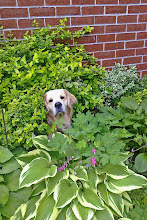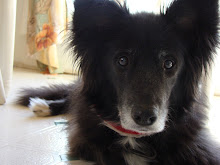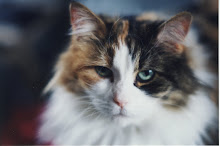
Normally my posts are about dogs, usually Oak, but today I'm writing about something a wee bit different.
I learned something new the other day: guinea pigs can get scurvy! They can become very sick if they don’t get the correct amount of vitamin C in their diet.
Like humans, guinea pigs lack the enzyme necessary to create their own vitamin C. Vitamin C is necessary for the formation of collagen, bone matrix and tooth dentin. Signs of a vitamin C deficiency may include: loss of appetite, depression, ruffled fur, weight loss, swollen painful joints, poor bone and teeth development, bleeding gums, and nasal discharge. Guinea pigs that are experiencing these symptoms should be seen by a veterinarian. Scurvy can be reversed through diet changes or vitamin C injections.
Although guinea pig pellets have added vitamin C, storage or exposure to sunlight can rapidly destroy it. The vitamin C added to the pellets remains stable for up to 3 months from the milling date. When storing your guinea pigs food keep it in a cool, dark place.
It may be necessary to supplement your guinea pigs food with fresh fruits and vegetables and/or a vitamin C supplement. Some excellent sources of vitamin C include: kale, parsley, sweet red and yellow peppers, broccoli, cabbage and guava. If using a vitamin C supplement it is best to use a chewable tablet as opposed to drops added to your guinea pig’s water. Hard water, metal containers and chlorine can cause the vitamin C to deteriorate and the change in taste may also put your guinea pig off drinking. Do not use a multivitamin because there is a potential for toxic overdose of other vitamins and minerals. Vitamin C is a water soluble so it is excreted in the urine and will not build up to toxic levels in the body.
So remember, every morning when you take your vitamin C tablet, don’t forget you guinea pig needs some too.














.jpg)






